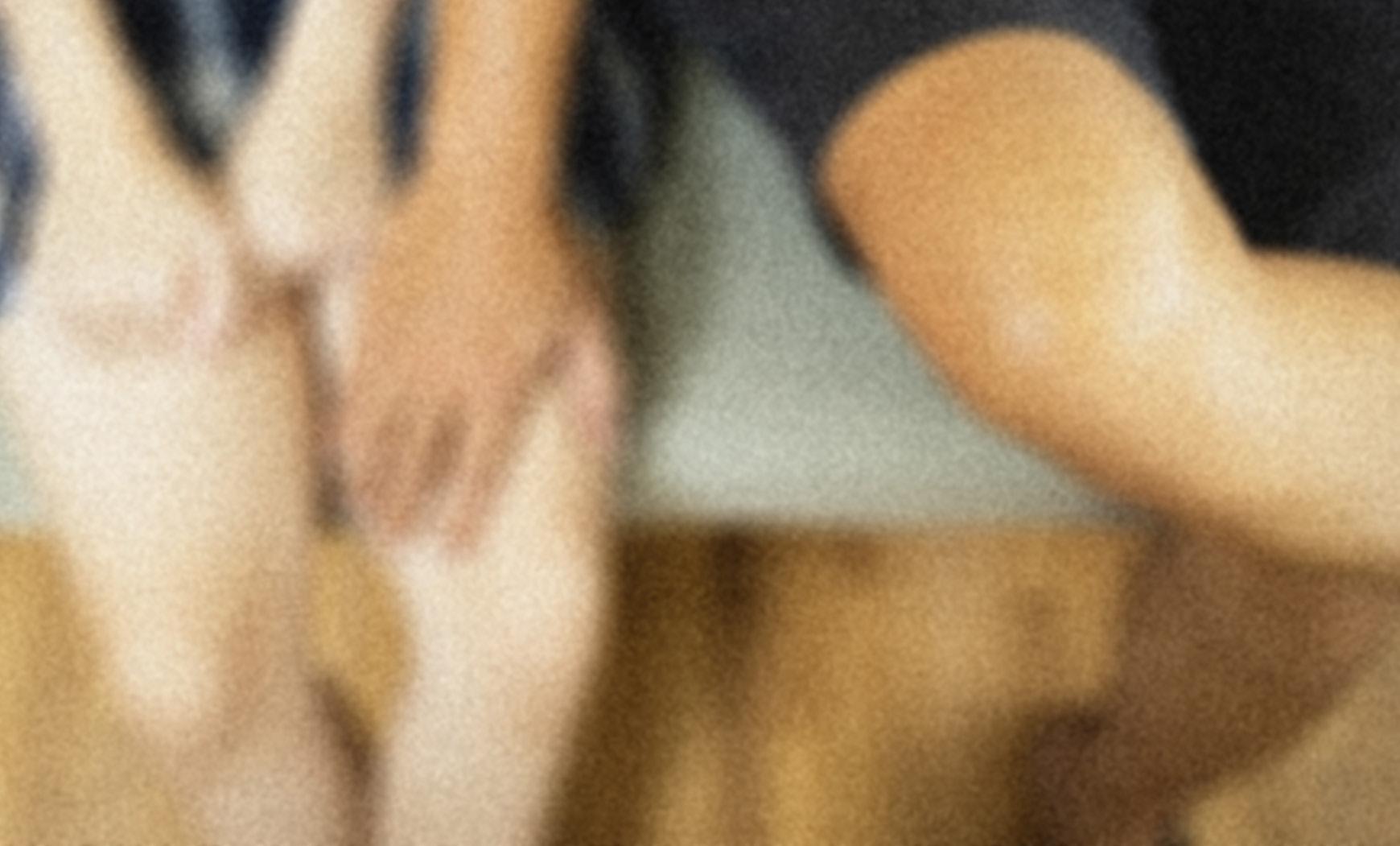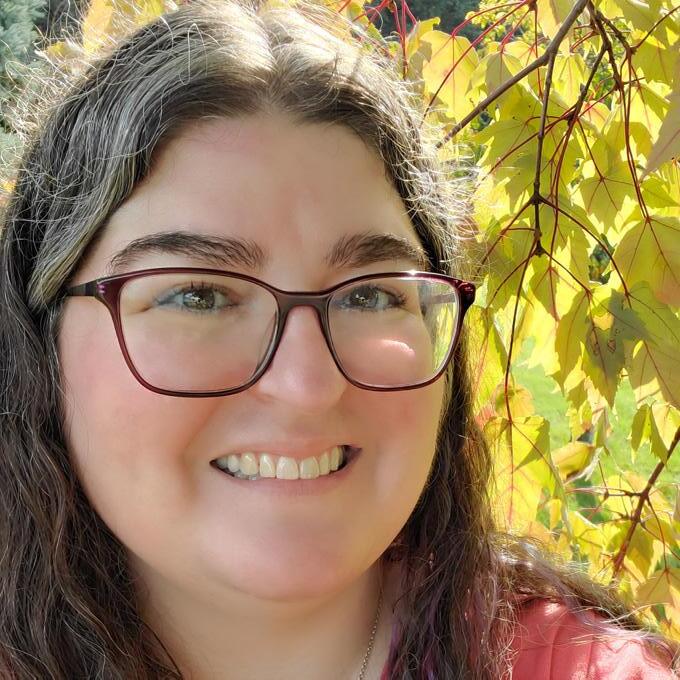
10 minute read
FEMALE SEXUAL OFFENDERS
Donna Bulatowicz
I spent years trying to become a ghost. I thought if I couldn’t be seen, no one would hurt me again. I didn’t want anyone to know about the sexual abuse. People often made fun of me or claimed that I wasn’t actually abused because a woman raped me.
Society seems to struggle to understand that women can abuse children and that it’s harmful. If one looks at the comment sections in articles about women teachers abusing boys, one will usually see twisted comments about the abuse. There tend to be many responses that act as though the abuse is non-traumatizing, when the opposite is true. Comments on articles about women teachers who abuse girls are similarly harmful and gross. Of course, not every comment is disgustingly supportive of sexual abuse. But there are a higher percentage of those types of comments than in articles about men who abuse children.
The lack of compassion towards survivors of female pedophiles and the diminishment of the damage done adds another layer of harm and silences victims. Unconscious biases about women not being capable of sexual offenses or that abuse done by women doesn’t “count” can lead to shoddy investigations, reluctance to bring charges, and more. Thus, few female pedophiles are charged, let alone convicted.
Statistics about the prevalence of this type of abuser are difficult to pin down. Surveys of victims show there are far more women who sexually abuse children than most people realize, but those surveys don’t usually factor into official estimates. Official estimates vary. Some claim that 2% of child molesters are women, while other estimates are 20% or more. Most estimates acknowledge that the actual percentage is likely higher than reported. Studies note that survivors of female predators tend to report at a lower rate than survivors of male predators
Additionally, there is a lack of representation in the literature about female survivors of female perpetrators. I searched—often in vain—for others. As a teen, I spent a lot of time in the library getting frustrated that I couldn’t find a single book about sexual abuse that even mentioned victims like me—a girl who was molested by a woman.
For most of my life, I’ve felt alone.
The few stories I could find with women predators were about boy victims. After a few decades, I gave up. I figured mine was an isolated case, and no one would ever understand what I went through or think it mattered. Thus, I did my best to pretend what she did to me wasn’t bad, harmful, etc. The pain of no representation anywhere haunted and hurt me. It silenced me almost as much as the abuser and her minions did
When I started my healing journey in August 2022, I desperately needed to know I wasn’t alone. I started searching again through books, studies, etc. I quickly became discouraged, as the books I had access to and the initial studies I located mentioned male victims only. Even resources curated by other survivors excluded female survivors of female sex offenders.
When I started my healing journey in August 2022, I desperately needed to know I wasn’t alone. I started searching again through books, studies, etc. I quickly became discouraged, as the books I had access to and the initial studies I located mentioned male victims only. Even resources curated by other survivors excluded female survivors of female sex offenders.
A few months into my healing work, I read about another woman who’d been sexually abused by a woman when she was a little girl. Then I saw another story. And another. I wasn’t alone!
The sadness that others suffered like I had warred with the inexpressible relief at seeing that I wasn’t the only one. I wasn’t invisible.
Others would understand. I felt as though I had emerged from a dim cave and people were truly seeing me and confirming that I existed, that I mattered, and that they believed me. It was life-alerting.
Unfortunately, we are often still erased. Even people who are part of the sexual abuse survivor community unintentionally exclude us. For instance, a survivor shared their podcast episode about a male survivor of a male abuser and stated how they have episodes about every type of sexual abuse. I eagerly asked for a link to one about a female survivor of a female abuser. I thought I would finally hear another podcast by someone
like me, and I couldn’t wait. Instead, that person gave me a handful of links that I had submitted to them when I noticed their extensive resource list excluded us. That stung and frustrated me. It was another way we were being erased, albeit unintentionally. Impact matters more than intention, though.
It’s painful to not have representation until I find or create resources. It’s harmful to exclude any survivors, no matter one’s intention.
I’ve found that those to whom I provide resources tend to not look for additional resources of their own or even post about this type of abuse. Thus, the resources just stay there, unpromoted and unaugmented. That adds an additional layer of hurt, as it sends a message that despite what they may say, they don’t care much about inclusion of all survivors. Actions speak louder than words.
In books about healing from childhood sexual abuse, we survivors of female-tofemale abuse are often barely mentioned or entirely excluded. For example, I read a book for survivors that talks about males abusing females, males abusing males, and females abusing males. Females abusing females are never mentioned, as though we don’t exist. That’s rather common. When Dr. Zetta Elliott talked about representation in children’s literature, she mentioned that she “had to dream myself into existence ” in the books she read as a child. I must do the same in most resources for sexual abuse survivors.
This is true for peer-reviewed research as well. Most studies focus on male pedophiles. Numerous studies center female and male victims of male pedophiles or male victims of female pedophiles. Many neglect to mention that females can victimize females also. This pattern repeats and sends a message that female survivors only matter when a male abused them.
In addition to outright erasure, people tend to diminish the impact of being sexually abused by a female. I’ve been told that I’m “lucky” to be abused by a female. The person usually explains how it “doesn’t really count,” “isn’t real abuse,” etc. Males abused by females typically hear similar things.
Why does our society act as though the impact of sexual abuse is less when a female abuses a child? None of us are lucky to be victims. All sexual abuse counts, and all of it is damaging and horrifying.
These messages create a space that makes it even more challenging for survivors of women abusers to speak about their abuse. Memories of past attempts that were met with ridicule, indifference, or even “you’re lucky,” silence us. Lack of resources add another layer of hurt. Survivors often doubt themselves and/or unconsciously deny the harm caused as is. When society reinforces that message and adds that the abuse “didn’t count” or “wasn’t abuse” it causes additional damage. All survivors should all be included in resources.
Due to the dismissive and invalidating attitudes of many regarding these types of abuse, I didn’t even realize that something that I experienced as a child was sexual abuse until about two years ago. One of my female childhood friends threatened me into letting her touch me. This continued off and on for most of our elementary years. She had more power than I, but she was a bit younger. I learned that it counts, and I finally read a story from another survivor of something similar. I wasn’t as isolated as I felt.
The relief about not being alone is huge. It’s validation that one exists, that one is seen and heard. It facilitates healing, eases burdens, helps erase denial, builds self esteem, and assists with self-compassion.
When the predominant story of abuse focuses on men or boy perpetrators, that allows women or girls to get away with it. It allows them to do things in full view of other adults that no one blinks at.
My upper elementary teacher adjusted my clothes a lot. Her hands were on me basically anytime she ventured near. She kissed me several times a day. She cuddled me on her lap, held me in her arms, and more. All of these are inappropriate for a teacher to do with a student.
Yet other teachers saw her as motherly toward me. However, I’m sure they would have intervened if they saw a male teacher kiss me, pick me up, follow me into the same bathroom stall, or put their hands in my skirt to fix my tights. She played up the image of being “motherly,” telling me in front of other adults that I was her little girl, that she wished she was my mom, and more. On a few field trips, she pretended that I was her daughter.
She also got away with the sexual abuse because of her gender. The police told me a woman wouldn’t molest a girl. The child psychologist had never had a patient who was molested by a woman. My abuser had numerous enablers who didn’t believe she would sexually abuse a girl because she had a husband, was a pillar of the community, had sons, etc. They helped her retaliate against me, and she wielded the “poor, fragile, prudish woman ” stereotype to her advantage.
The halo effect helped her get away with her crimes as well.
People at the time tended to believe teachers were more upstanding and moral than others. They believed women wouldn’t abuse children. So many projected their biases onto her, and she manipulated that by creating sociopathic facades that allowed her to molest not only me and get away with it, but little girls after me. She always got away with her felonies because she preyed on people’s stereotypes, relied on the halo effect, and was extremely calculating and manipulative; she was a socially skilled pedophile.
I’d like to think that things have changed. But I’m still often a lone voice asking for someone to include those of us abused by girls and women. Other survivors and survivor groups unintentionally exclude us. And children are too frequently disbelieved, especially when it’s a female who abused them.
Elevating the voices of those of us who are usually excluded would make a difference. Auditing one’s resource lists and checking for inclusion of not just all genders abused by all genders, but also for representations of BIPOC, LGBTQ+ people, religious and nonreligious people, disabled people, and more .
Purposeful inclusion makes a powerful impact.
Additionally, advocacy centers, researchers, trainers, and more can examine the representation of people in trainings, brochures, research, books, etc., and make specific changes to be more inclusive.
All survivors deserve to see people like themselves included. It takes purposeful effort and time to ensure authentic, robust inclusion, and it’s worth it.
As we change the views of what survivors and perpetrators look like, we make it more likely that victims will come forward, that police and others won’t dismiss cases based on gender, and that survivors will feel seen and supported. Most importantly, we create a safer world for children.

ABOUT THE AUTHOR
Dr. Donna Bulatowicz has recently moved to the beautiful state of Maryland to be closer to family. She studies and advocates for inclusive children’s literature as well as sexual abuse prevention. She is a former chair of the Charlotte Huck Award for Outstanding Fiction for Children and a former president of the Montana Association of Teachers of English Language Arts (MATELA). Dr. Bulatowicz has created and given sexual abuse prevention trainings for teachers and other school officials.










